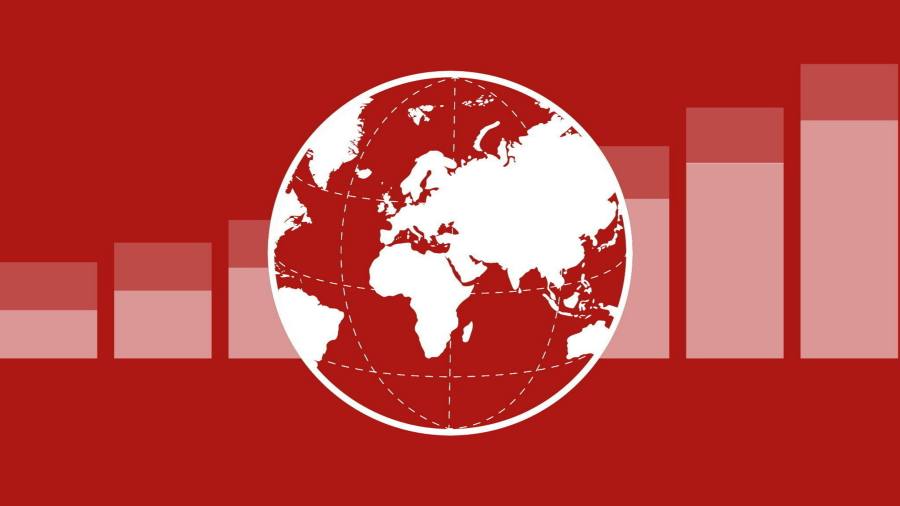Receive free Markets updates
We’ll send you a myFT Daily Digest email rounding up the latest Markets news every morning.
Wall Street stocks fell on Wednesday, with investors turning their attention to data on Thursday that is expected to show an acceleration in US inflation in July.
The benchmark S&P 500 closed 0.7 per cent lower, dragged down by technology stocks. The tech-heavy Nasdaq Composite shed 1.2 per cent.
Among notable moves, semiconductor group Nvidia was down 4.7 per cent, making it one of the worst performers in the S&P 500. Separately, the KBW Bank index fell 1.7 per cent, continuing its slide from Tuesday after Moody’s downgraded 10 midsized US lenders on Monday night.
Traders are bracing for the latest US inflation numbers, which will be released on Thursday and are expected to show consumer prices rising to 3.3 per cent year on year in July, up from 3 per cent in June. That would mark the first acceleration in the headline figure since June 2022.
Even so, a “soft landing” scenario under which higher interest rates induce neither a deep economic contraction nor a sharp jump in unemployment has become “the dominant market narrative [and] recession risk has been largely priced out from risk assets — apart from in commodities”, said analysts at JPMorgan.
Traders sold short-dated US government debt, with the yield on two-year Treasuries rising 0.05 percentage points to 4.81 per cent.
Brent crude, the international oil benchmark, rose 1.6 per cent to $87.55 a barrel, the highest since January and up roughly a fifth since the end of June in a rise triggered by Saudi Arabia’s and Russia’s cuts to production.
European natural gas prices, meanwhile, surged almost 40 per cent to €43 per megawatt hour on news of potential supply disruptions from Australia.
Asian equities were mixed as data showed China’s economy slipped into deflation in July, heightening concerns over low consumption and growth after the release of disappointing trade numbers earlier in the week.
Hong Kong’s Hang Seng index rose 0.3 per cent and China’s CSI 300 shed 0.3 per cent after consumer prices in the world’s second-biggest economy fell 0.3 per cent year on year in July.
Data released on Tuesday showed China’s exports and imports declined by 14.5 per cent and 12.4 per cent year on year in dollar terms, respectively.
Some investors hope a government stimulus package might revive economic growth and promote a return to inflation.
In Europe, Italian bank stocks rebounded after the country’s finance ministry softened a planned windfall tax that sent shares in the biggest lenders tumbling in the previous session.
Europe’s region-wide Stoxx 600 trimmed earlier gains to close up 0.4 per cent, France’s Cac 40 added 0.7 per cent and Germany’s Dax climbed 0.5 per cent. London’s FTSE 100 rose 0.8 per cent.
Shares in Intesa Sanpaolo and UniCredit, Italy’s two largest banks by assets, gained 2.3 per cent and 4.4 per cent, respectively, after the country’s finance ministry said a tax on net interest income would be capped at 0.1 per cent of assets.
State-owned Monte dei Paschi di Siena rebounded 2.5 per cent after dropping by more than a tenth on Tuesday, while Banco BPM added 5.4 per cent.
Despite the legislative climbdown, Italy’s decision to go after the banks could fuel debate over profit windfall taxes in other European countries, raising the chance that lenders pre-empt new taxation by raising deposit rates, analysts said. Spain has already introduced a windfall tax on banks.
Read the full article here




